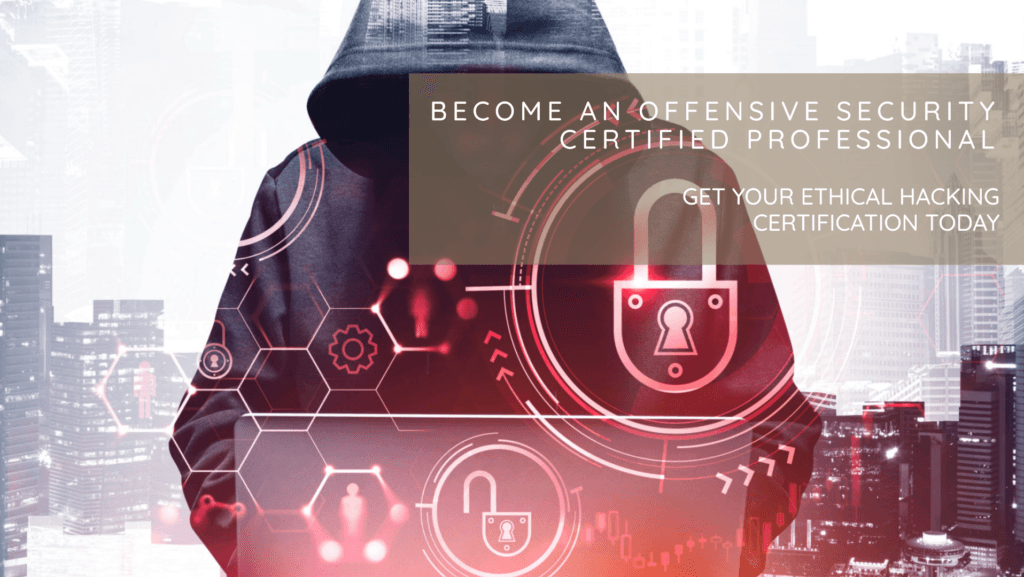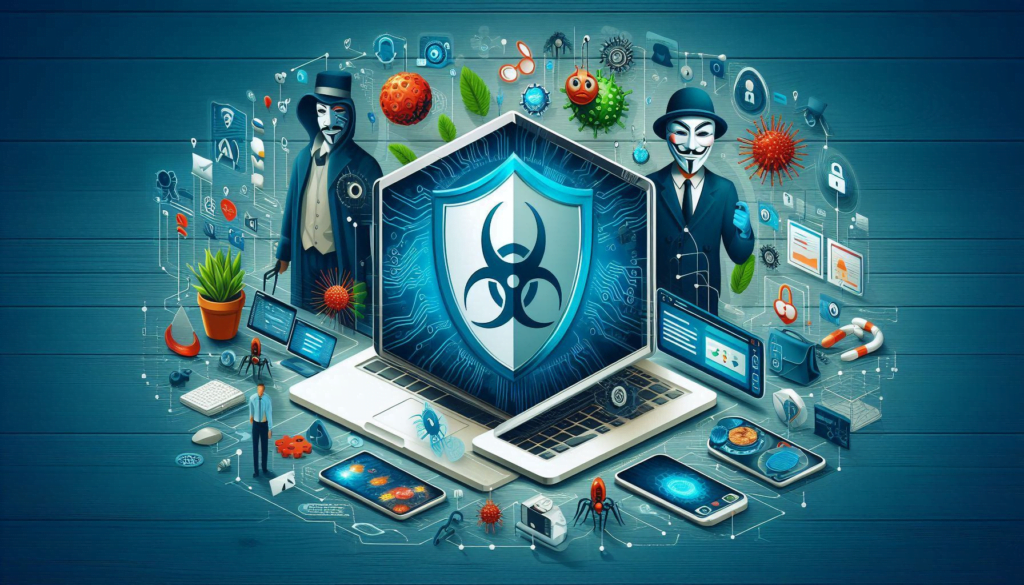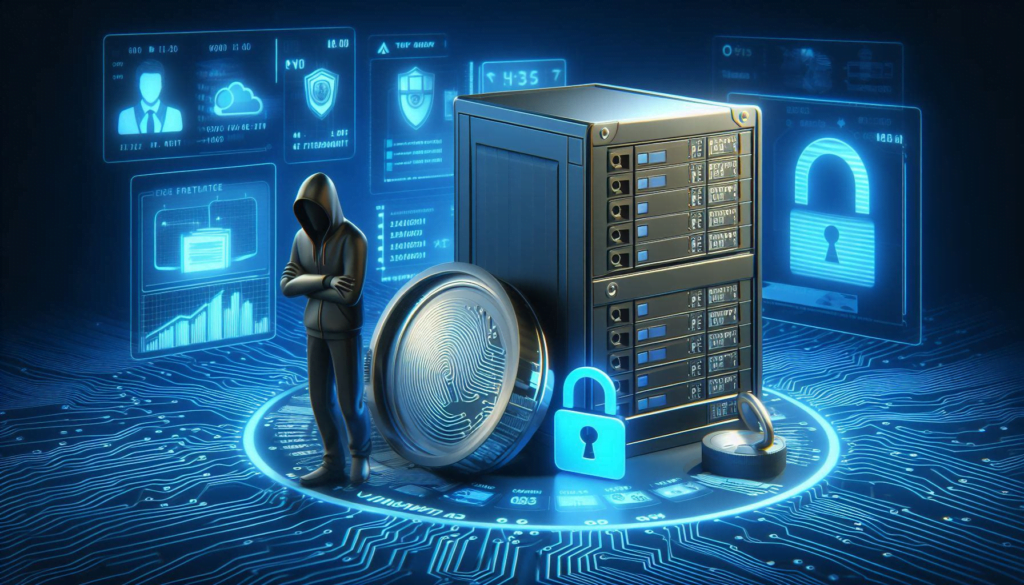Welcome to Technology Moment, your go-to destination for insights on the latest trends, certifications, and advancements in the world of technology. Today, we’re diving into the Certified Information Systems Security Professional (CISSP) certification—widely regarded as the gold standard for cybersecurity professionals. Whether you’re a seasoned IT expert or just starting your journey in information security, this comprehensive guide will help you understand why CISSP stands out and how it can propel your career to new heights. Stay tuned as we explore its benefits, requirements, and why it’s a must-have for anyone serious about cybersecurity.
The Certified Information Systems Security Professional (CISSP) certification is one of the most prestigious and globally recognized credentials in the field of cybersecurity. It was introduced in 1994 by the International Information System Security Certification Consortium, commonly known as (ISC)², to address the growing need for qualified professionals who can design, implement, and manage cybersecurity programs effectively.
CISSP serves as a benchmark for information security expertise and is ideal for professionals seeking to establish their credibility and competency in the cybersecurity industry. Holding this certification signifies a deep understanding of security principles, practices, and standards required to safeguard organizations from cyber threats.
Why Was CISSP Created?
As technology evolved and businesses began relying more heavily on digital infrastructure, the risk of cyberattacks grew exponentially. There was a rising demand for skilled cybersecurity professionals who could manage security frameworks, protect sensitive data, and ensure compliance with industry standards. CISSP was developed to validate the expertise required to manage these security challenges effectively.
What Does the CISSP Certification Cover?
The CISSP certification covers a comprehensive body of knowledge known as the Common Body of Knowledge (CBK). It includes essential topics related to cybersecurity practices, such as risk management, cryptography, network security, and incident response. The CBK ensures that certified professionals have a well-rounded understanding of multiple security domains.
Key Characteristics of CISSP:
- Vendor-Neutral: CISSP is not tied to any specific technology or platform, making it applicable across various industries and security tools.
- Globally Recognized: Accepted in over 160 countries, it is often a requirement for top-tier cybersecurity roles.
- Comprehensive Coverage: Covers eight core domains of cybersecurity, ensuring a broad and deep understanding of the field.
- Experience-Based: Requires candidates to have substantial work experience, emphasizing practical knowledge.
Significance of CISSP Certification in the Cybersecurity Industry
CISSP certification is widely regarded as the gold standard in cybersecurity for several reasons:
- Trust and Credibility: Employers trust CISSP-certified professionals due to the rigorous requirements and industry alignment.
- Standardized Knowledge: It provides a standardized framework for understanding and implementing security strategies.
- Global Demand: The increasing frequency of cyber threats has made CISSP-certified experts highly sought after worldwide.
Table of Contents
What is CISSP?
It is designed to validate the expertise of information security professionals in protecting organizational assets, managing cybersecurity risks, and implementing security best practices.
The CISSP certification signifies that a professional has advanced knowledge and practical experience in designing, implementing, and managing a comprehensive cybersecurity program. It is often regarded as the gold standard for information security certifications due to its rigorous examination process and comprehensive coverage of security principles.
CISSP at a Glance:
- Certification Body: (ISC)²
- Launched: 1994
- Recognition: Globally respected and ANSI-accredited
- Experience Requirement: Minimum of 5 years in cybersecurity-related work
- Focus Areas: Security management, risk assessment, network security, cryptography, identity management, and more
Purpose of CISSP Certification:
The primary goal of CISSP is to ensure cybersecurity professionals possess the knowledge and skills to secure sensitive data, defend against cyber threats, and manage security systems effectively. It demonstrates a professional’s ability to:
- Develop and implement security policies.
- Protect information assets from unauthorized access and cyber threats.
- Manage security programs aligning with business objectives and compliance.
Key Features of CISSP Certification:
- Vendor-Neutral: The certification is not tied to any specific technology or product, making it widely applicable across industries.
- Comprehensive Coverage: CISSP covers eight critical domains of information security (also known as the Common Body of Knowledge or CBK).
- Professional Validation: Holding a CISSP demonstrates advanced technical and managerial expertise.
Who Offers the CISSP Certification?
The (ISC)² is a nonprofit organization that provides cybersecurity education and certifications. Established in 1989, (ISC)² is dedicated to enhancing cybersecurity practices and standards worldwide through certifications like CISSP, CCSP, and SSCP.
Why is CISSP So Highly Regarded?
CISSP has become the benchmark for cybersecurity excellence because:
- It requires real-world experience (a minimum of 5 years in the field).
- The exam is challenging and tests a wide range of security concepts.
- It promotes a holistic understanding of cybersecurity practices.
Why is CISSP Important?
The Certified Information Systems Security Professional (CISSP) certification holds immense significance in the cybersecurity industry. It has become a benchmark for validating expertise, ensuring security competence, and enhancing professional credibility across the globe. Here’s a detailed breakdown of why CISSP is crucial:
1. Demonstrates Expertise and Knowledge
CISSP validates an individual’s advanced knowledge and skills in cybersecurity principles, frameworks, and best practices. The certification covers eight comprehensive domains, ensuring that certified professionals have a deep understanding of areas like risk management, security architecture, network security, and identity management.
2. Global Recognition and Credibility
CISSP is recognized worldwide as a standard for cybersecurity excellence. Being certified instantly adds professional credibility and trustworthiness, as it signifies that the holder has met rigorous standards and passed a challenging exam. Many top organizations and government agencies prefer or mandate CISSP-certified professionals for cybersecurity roles.
3. Compliance with Industry Standards
The certification aligns with ISO/IEC 17024 standards, which ensures it meets global requirements for certifying professionals. This compliance makes CISSP not just a certification but a validation of meeting international cybersecurity benchmarks, often required for working in regulated industries like finance, healthcare, and defense.
4. Opens Career Advancement Opportunities
CISSP certification can be a game-changer for career growth. It often serves as a prerequisite for senior-level positions such as Chief Information Security Officer (CISO), Security Consultant, and Security Architect. Employers prioritize CISSP holders for leadership roles due to their proven expertise and holistic understanding of cybersecurity practices.
5. Higher Salary Potential
CISSP holders generally earn significantly higher salaries than their non-certified peers. According to various salary surveys, CISSP-certified professionals can earn over 25% more than their uncertified counterparts due to the high demand for their skills.
6. Comprehensive Skill Validation
The CISSP certification ensures a broad skill set across multiple security domains, such as:
- Security and Risk Management
- Asset Security
- Security Engineering
- Security Operations This comprehensive coverage proves that the certified professional can handle diverse cybersecurity challenges across different sectors.
7. Encourages Continuous Learning and Growth
To maintain the certification, professionals must earn Continuing Professional Education (CPE) credits. This requirement ensures that CISSP holders stay updated with the latest trends, threats, and technologies in the cybersecurity landscape, promoting ongoing education and skill enhancement.
8. Trust and Client Assurance
For consultants and security firms, having CISSP-certified professionals on board enhances client confidence. It reassures clients that their sensitive data and systems are protected by individuals who meet the highest cybersecurity standards.
Key Benefits of Earning a CISSP Certification
Earning the Certified Information Systems Security Professional (CISSP) certification can significantly impact your cybersecurity career. It not only validates your expertise but also opens doors to numerous professional and financial opportunities. Here’s a detailed breakdown of the key benefits of obtaining a CISSP certification:
1. Career Advancement Opportunities
CISSP is a globally respected credential that can boost your career trajectory in cybersecurity. Many organizations prioritize CISSP-certified professionals for senior roles like:
- Security Manager
- Chief Information Security Officer (CISO)
- Security Consultant
- IT Auditor
Having a CISSP certification demonstrates your in-depth knowledge of information security and management, making you a strong candidate for leadership positions.
2. Higher Salary Potential
One of the most attractive benefits of CISSP certification is the potential for a higher salary. According to industry reports, CISSP-certified professionals often earn significantly more than their non-certified counterparts.
- Average Salary: CISSP holders can earn an average annual salary of over $120,000, depending on experience and location.
- Justification: Employers recognize CISSP certification as a benchmark for expertise, justifying higher pay for those who have proven their skills.
3. Industry Recognition and Credibility
The CISSP is often referred to as the “gold standard” in cybersecurity certifications. It is accredited by ANSI (American National Standards Institute) and recognized under the DoD Directive 8570/8140, making it a trusted credential for both private and government sectors.
- Global Acceptance: Recognized in over 160 countries.
- Employer Trust: Hiring managers value CISSP as a sign of proven expertise and commitment.
4. Enhanced Knowledge and Skill Set
The CISSP certification process involves mastering the (ISC)² Common Body of Knowledge (CBK), which covers a comprehensive range of cybersecurity topics. This helps you gain expertise in:
- Risk Management and Compliance
- Security Architecture and Engineering
- Network Security
- Identity and Access Management (IAM)
These skills prepare you to handle complex security challenges across various industries.
5. Access to a Global Professional Network
CISSP certification grants you membership in the (ISC)² network, which includes over 150,000 professionals globally. This offers:
- Networking Opportunities: Conferences, events, and forums for knowledge exchange.
- Collaboration: Engage with top cybersecurity experts.
- Career Resources: Job boards and mentorship programs exclusive to (ISC)² members.
6. Compliance with Security Standards
CISSP aligns with key security standards and frameworks, such as:
- ISO/IEC 27001 (Information Security Management Systems)
- NIST (National Institute of Standards and Technology) frameworks
Holding a CISSP certification ensures that you are well-versed in globally accepted security standards, making you an asset for organizations focusing on regulatory compliance.
7. Increased Job Security
With the growing threat landscape in cybersecurity, professionals with verified expertise are in high demand. CISSP certification helps you stand out in a competitive job market and provides job security, especially as organizations increasingly prioritize security measures.
8. Continuous Professional Development (CPD)
CISSP requires continuous education to maintain the certification, ensuring that you stay updated with the latest security trends and technologies. This ongoing learning keeps your skills relevant and sharp in a constantly evolving industry.
Who Should Pursue CISSP?
The Certified Information Systems Security Professional (CISSP) certification is designed for experienced cybersecurity professionals who aim to demonstrate their expertise in information security management, policies, and practices. However, it caters to a diverse range of roles across the cybersecurity landscape. Here’s a detailed look at the ideal candidates for the CISSP certification:

1. Information Security Professionals
- Primary Audience: CISSP is specifically designed for individuals already working in cybersecurity roles.
- Reason: These professionals often need to validate their in-depth knowledge of security principles and practices.
2. IT Managers and Directors
- Primary Audience: IT managers, directors, and decision-makers involved in IT security strategy and policy-making.
- Key Job Titles: IT Manager, IT Director, Chief Information Security Officer (CISO).
- Reason: CISSP provides a deep understanding of how to manage security frameworks and align them with business goals, essential for leadership roles.
3. Security Consultants and Auditors
- Primary Audience: Professionals offering specialized security services to various organizations.
- Key Job Titles: Security Consultant, IT Auditor, Risk Management Consultant.
- Reason: CISSP helps consultants and auditors develop comprehensive knowledge of security frameworks, enabling them to better assess and improve an organization’s security posture.
4. Network and System Administrators
- Primary Audience: Technical staff responsible for managing and securing IT infrastructures.
- Key Job Titles: Network Administrator, Systems Administrator, Infrastructure Security Specialist.
- Reason: Network and system admins benefit from CISSP by gaining a broader understanding of security strategies beyond basic configurations and firewalls.
5. Risk Management and Compliance Officers
- Primary Audience: Professionals focused on regulatory compliance, risk assessment, and security governance.
- Key Job Titles: Risk Analyst, Compliance Officer, GRC Specialist.
- Reason: CISSP covers risk management principles and compliance frameworks, making it ideal for those involved in ensuring organizations meet legal and regulatory standards.
6. Software Developers and Security Architects
- Primary Audience: Developers and architects designing secure software and systems.
- Key Job Titles: Security Architect, Secure Software Developer.
- Reason: The CISSP curriculum includes software development security principles, ensuring professionals can build secure applications from the ground up.
7. Ethical Hackers and Penetration Testers
- Primary Audience: Offensive security professionals aiming to test and improve security defenses.
- Key Job Titles: Ethical Hacker, Penetration Tester, Red Team Operator.
- Reason: While CISSP is not penetration-testing focused, it provides a solid foundation for understanding defense strategies and security policies.
8. Professionals Seeking Career Advancement
- Primary Audience: Individuals looking to advance their careers in cybersecurity management and leadership.
- Reason: CISSP is a recognized certification that opens doors to higher-paying roles and senior management positions.
Prerequisites for CISSP Candidates:
- Experience: At least five years of paid work experience in two or more of the CISSP domains.
- Education Waiver: A relevant degree or other certifications can substitute for one year of experience.
Why CISSP Is a Smart Choice for These Roles:
- Broad Knowledge Base: CISSP covers a wide range of security concepts, making it suitable for diverse roles.
- Global Recognition: Recognized across industries and countries.
- Professional Credibility: Adds credibility and trust to the professional’s expertise.
- Higher Salary Potential: CISSP holders often earn higher salaries than non-certified peers.
CISSP Domains Overview (CBK)
The CISSP certification is built around a comprehensive framework known as the Common Body of Knowledge (CBK). This CBK consists of 8 essential domains, which represent the core areas of knowledge required to be a cybersecurity expert. Understanding these domains is crucial for preparing for the CISSP exam and becoming a skilled cybersecurity professional. Let’s dive into each domain in detail:
1. Security and Risk Management
This domain focuses on the foundational concepts of information security and risk management. It covers the principles and processes involved in managing information security at an organizational level.
Key concepts include:
- Confidentiality, Integrity, and Availability (CIA Triad): Ensuring that sensitive information remains private (confidential), accurate (integrity), and accessible (availability) when needed.
- Governance, Compliance, and Legal Issues: Understanding regulations, policies, and standards like GDPR, HIPAA, and other compliance frameworks that govern data security.
This domain also emphasizes ethical principles, professional conduct, and decision-making in real-world scenarios.
2. Asset Security
Asset Security focuses on ensuring that an organization’s valuable assets are protected from unauthorized access, loss, or damage. Assets in this domain refer to physical and digital data resources.
Key topics include:
- Data Classification: Categorizing data based on its importance and sensitivity to determine appropriate protection levels.
- Data Handling and Protection: Ensuring the secure storage, transfer, and disposal of information.
- Privacy Protection: Safeguarding personally identifiable information (PII) and adhering to privacy laws and best practices.
Asset security also involves securing both intellectual property and physical assets, creating strong security policies, and applying risk management processes for asset protection.
3. Security Architecture and Engineering
This domain focuses on designing and building secure information systems, from architecture to engineering, to ensure that systems can resist and recover from attacks.
Key areas covered:
- Secure System Design: Understanding how to create systems that are resilient against threats, whether through secure coding practices, encryption, or access control mechanisms.
- System Hardening: Techniques for reducing vulnerabilities by removing unnecessary services, software, or configurations from a system.
- Security Models: Familiarity with security models such as Bell-LaPadula, Biba, and Clark-Wilson, which define rules for managing access and data integrity.
It also discusses security in areas such as mobile devices, cloud infrastructure, and virtualization.
4. Communication and Network Security
This domain addresses the critical elements of securing network infrastructures, communication channels, and data exchanges. Given the growing threats to networks, this domain is crucial for ensuring secure communications.
Key concepts include:
- Network Architecture: Understanding different network designs and how to secure each component (e.g., routers, switches, firewalls).
- Secure Network Design and Protocols: Implementing security measures such as firewalls, intrusion detection/prevention systems (IDS/IPS), and encryption to protect data in transit.
- Secure Communication Channels: Ensuring safe communication across networks through encryption methods (SSL/TLS, VPNs).
Network security is essential for protecting against unauthorized access and ensuring the integrity and confidentiality of transmitted data.
5. Identity and Access Management (IAM)
This domain focuses on managing user identities and controlling access to systems and data. Effective IAM is essential for securing an organization’s information resources.
Key areas:
- Access Control Models: Implementing models like Role-Based Access Control (RBAC), Discretionary Access Control (DAC), and Mandatory Access Control (MAC).
- Authentication Methods: Using multi-factor authentication (MFA), biometrics, smart cards, and passwords to verify identities.
- Authorization: Defining who can access what data and resources within the organization and ensuring access control policies are consistently enforced.
IAM is critical for preventing unauthorized access and ensuring that users only have the necessary permissions to perform their tasks.
6. Security Assessment and Testing
This domain emphasizes the importance of evaluating security systems to identify vulnerabilities, test effectiveness, and assess the security posture of an organization.
Key activities include:
- Vulnerability Assessment: Scanning systems for weaknesses or flaws that could be exploited by attackers.
- Penetration Testing: Simulating cyberattacks to identify weaknesses and areas for improvement.
- Security Audits and Assessments: Evaluating the overall security of an organization’s systems and processes.
Security assessments help organizations identify potential threats and determine the effectiveness of existing security measures.
7. Security Operations
Security Operations focuses on the day-to-day tasks involved in protecting and monitoring the organization’s information systems. This domain ensures that security policies and procedures are applied effectively in a real-world setting.
Key areas:
- Incident Response: Establishing procedures for responding to security breaches, including detection, containment, eradication, and recovery.
- Monitoring: Implementing tools and techniques to continuously monitor for security events and anomalies that may indicate an attack or breach.
- Business Continuity and Disaster Recovery: Developing plans for ensuring business operations can continue during and after a cyberattack or natural disaster.
This domain is essential for maintaining ongoing protection and for recovering from security incidents.
8. Software Development Security
Secure coding practices and application security are crucial in minimizing vulnerabilities within software and applications.
Key areas:
- Secure Coding: Understanding how to write secure code to prevent common vulnerabilities like SQL injection, cross-site scripting (XSS), and buffer overflows.
- Software Development Life Cycle (SDLC): Incorporating security practices at every stage of the SDLC, from design and development to testing and maintenance.
- Application Security Testing: Implementing methods such as static code analysis and dynamic testing to ensure software is secure before it is deployed.
Application security ensures that vulnerabilities are caught early in the development process, preventing later exploitation.
CISSP Certification Requirements
Becoming a Certified Information Systems Security Professional (CISSP) requires more than just passing an exam—it requires meeting specific eligibility criteria that demonstrate your expertise and experience in the field of cybersecurity. The (ISC)² sets these requirements to ensure that those who earn the CISSP certification have the practical knowledge and hands-on experience necessary to handle complex security challenges. Here’s a detailed look at the CISSP certification requirements.
1. Professional Experience
One of the most important CISSP certification requirements is experience. Before you can sit for the exam, (ISC)² requires you to have at least five years of full-time work experience in two or more of the eight CISSP domains of knowledge. These domains cover everything from risk management to software security, and they are essential to the CISSP exam.
If you don’t have the required five years of experience, there’s a way to make up for it. You can earn a CISSP Associate status by passing the exam first. Once you pass the exam, you’ll have up to six years to gain the necessary experience to fully earn your CISSP certification. In this case, your certification will be granted as an Associate of (ISC)², and you’ll be able to officially earn the CISSP designation once the experience requirement is met.
2. Endorsement by a Current CISSP
After passing the exam, candidates must be endorsed by someone who is already a CISSP-certified professional. This endorsement ensures that the candidate’s work experience is legitimate and meets the necessary standards.
The endorser must be an active CISSP holder, and they will verify your professional experience by vouching for your expertise in the domains covered by the CISSP exam. If you don’t have an endorser, (ISC)² can help connect you with someone. It’s a simple process but an important part of confirming that your career background aligns with the CISSP standards.
3. Pass the CISSP Exam
The next step is to pass the CISSP exam, which is a rigorous test designed to assess your knowledge and understanding of the CISSP domains. The exam consists of 100-150 multiple-choice questions and lasts for 3 hours. It is based on the Common Body of Knowledge (CBK) and covers a wide array of cybersecurity topics.
The passing score for the exam is 700 out of 1000 points, which means you must score at least 70% to pass. This exam tests both theoretical knowledge and practical experience, so you need to be familiar with the concepts in-depth to answer questions accurately.
4. Code of Ethics
As part of the CISSP certification requirements, you must agree to the (ISC)² Code of Ethics. The code is a set of ethical guidelines that govern the behavior of certified professionals. By agreeing to the code, you commit to acting with integrity, honesty, and professionalism in all of your cybersecurity activities.
Violating the Code of Ethics could lead to disciplinary action, including suspension or revocation of your CISSP certification, so adhering to these principles is critical.
5. Ongoing Professional Education (CPE)
Once you earn the CISSP certification, your journey doesn’t end there. To maintain the certification, CISSP professionals are required to earn Continuing Professional Education (CPE) credits every three years. A total of 120 CPE credits is needed within this period. This ensures that you stay current with the ever-changing cybersecurity landscape.
You can earn CPE credits by participating in activities such as:
- Attending cybersecurity conferences
- Completing training or courses
- Writing articles or books
- Teaching or presenting on cybersecurity topics
In addition, you need to pay an annual maintenance fee (AMF) to (ISC)² to keep your certification active.
6. Age and Legal Requirements
There are no age restrictions to pursue the CISSP exam, but candidates must meet certain legal and ethical standards. For example, individuals who have been convicted of crimes related to fraud or cybersecurity may be ineligible to pursue or maintain the CISSP certification.
Steps to Become CISSP Certified
Becoming a Certified Information Systems Security Professional (CISSP) involves a structured process that ensures only qualified professionals hold this prestigious certification.
1. Meeting Eligibility Criteria
Before you can attempt the CISSP exam, you must meet specific eligibility requirements outlined by (ISC)², the organization that administers the certification. The main eligibility requirement is having at least five years of full-time work experience in at least two of the eight CISSP domains. These domains cover a wide range of cybersecurity topics such as risk management, network security, and software development security.
If you don’t have the required five years of experience, you can still take the exam. However, you will be granted the title Associate of (ISC)² until you gain the necessary work experience. Once you gain the experience, you can apply to become a full CISSP.
2. Preparing for the Exam
The CISSP exam is notoriously challenging, so preparation is crucial. Here’s how to go about preparing for the exam:
- Study Materials: Begin by reviewing the (ISC)² CISSP official study guides. These resources provide in-depth coverage of all eight domains and are tailored to help candidates succeed. Books like the CISSP Official Study Guide by James M. Stewart are highly recommended.
- Online Courses and Bootcamps: Many online platforms offer CISSP preparation courses. Consider enrolling in a training bootcamp to ensure you’re on the right track. These courses are typically instructor-led and designed to cover all exam topics thoroughly.
- Practice Exams: These mock tests will familiarize you with the exam format, test your knowledge, and highlight areas that need more attention.
- Study Groups: Joining a study group or community of aspiring CISSP candidates can provide valuable insights, resources, and moral support.
3. Taking the CISSP Exam
Once you feel adequately prepared, it’s time to register for the CISSP exam. The exam is administered electronically at Pearson VUE test centers worldwide, which offer convenient scheduling.
- Exam Format 100 to 150 multiple-choice : These questions cover all eight domains and are designed to test both your theoretical knowledge and your ability to apply it to real-world scenarios.
4. Endorsement Process
After passing the CISSP exam, you must go through the endorsement process. This involves having your application validated by a current (ISC)²-certified professional who can attest to your experience and skills. If you don’t know anyone who is certified, you can contact (ISC)² directly for assistance in finding an endorser.
Your endorser will review your work experience and ensure that it meets the qualifications required for certification. Once endorsed, your certification application will be submitted for final approval.
5. Maintaining the Certification
Achieving CISSP certification is not a one-time task; it requires ongoing commitment.
- Earn Continuing Professional Education (CPE) Credits: CISSPs must earn at least 120 CPE credits every three years to maintain their certification. These credits can be accumulated through professional development activities such as attending cybersecurity conferences, taking online courses, or contributing to the cybersecurity community.
- Pay the Annual Maintenance Fee (AMF): There is an annual maintenance fee of $125 that helps keep your certification active. This fee is due every year, regardless of the number of CPE credits you’ve accumulated.
- Stay Up-to-Date with Industry Trends: Cybersecurity is a constantly evolving field. Therefore, it’s essential to stay informed about the latest threats, technologies, and best practices. The CISSP certification requires professionals to stay engaged with the industry to remain relevant.
How to Prepare for the CISSP Exam
Preparing for the Certified Information Systems Security Professional (CISSP) exam requires a strategic and well-structured approach, as the exam covers a broad range of cybersecurity topics. Below are key steps and resources to guide you through the preparation process.
1. Understand the CISSP Domains
The first step to preparing for the CISSP exam is to familiarize yourself with the CISSP Common Body of Knowledge (CBK), which consists of 8 security domains that will be tested during the exam. These domains are:
- Security and Risk Management
- Asset Security
- Security Architecture and Engineering
- Communication and Network Security
- Identity and Access Management (IAM)
- Security Assessment and Testing
- Security Operations
- Software Development Security
You should be comfortable with the concepts, best practices, and principles in each of these areas. It’s essential to have a good grasp of the knowledge required for each domain to ensure you’re not missing out on any critical area during your study.
2. Use Official Study Materials
The (ISC)² organization provides official study materials that can help you prepare. These include textbooks, study guides, and practice questions that align with the CISSP exam blueprint. Some of the popular resources are:
- (ISC)² Official CISSP Study Guide: This is the most recommended textbook, as it provides in-depth explanations of the domains.
- CISSP Practice Exams: Practice exams help you get familiar with the types of questions asked and the exam format.
These official resources ensure that your preparation is aligned with the official exam requirements.
3. Take CISSP Training Courses and Bootcamps
Consider enrolling in a CISSP training course or bootcamp. These structured courses, led by experienced instructors, can help you understand complex topics and provide useful tips on answering exam questions. Some popular options include:
- (ISC)² Official CISSP Training: Offered by the certifying body, this course is designed to cover all domains in detail and provide access to practice exams.
- Online Platforms (Udemy, LinkedIn Learning, Pluralsight): These platforms offer self-paced courses taught by certified professionals. They can be an affordable way to prepare for the exam.
- Bootcamps: If you need a more intensive, focused learning environment, CISSP bootcamps offer an immersive experience over a few days to a week.
Many bootcamps include pre- and post-assessment exams to measure your understanding before and after the training.
4. Create a Study Plan
Since the CISSP exam covers such a wide range of topics, creating a study plan is essential. Divide your study time based on the 8 domains, giving extra attention to the areas you find more challenging.
- Break down each domain: Spend a specific amount of time on each of the 8 domains based on its complexity and your comfort level.
- Study in blocks: Study in blocks of 1-2 hours with breaks in between to avoid burnout.
- Set goals: At the end of each week, review what you’ve learned and set goals for the next week.
- Revisit difficult topics: Regularly review and revise areas where you’re struggling to ensure you reinforce the material.
Consistency is key, so stick to your study plan and ensure you’re covering all the topics thoroughly.
5. Join Study Groups and Forums
Studying alone can sometimes feel overwhelming. Joining study groups or forums dedicated to CISSP can help you stay motivated and clarify any doubts. You can connect with other candidates and certified professionals who can offer insights and advice. Some popular online platforms include:
- Reddit CISSP Community: A great place to engage with others preparing for the exam.
- (ISC)² Member Forums: (ISC)² offers forums where you can ask questions, share resources, and interact with experienced professionals.
- LinkedIn Groups: LinkedIn groups dedicated to CISSP often share useful tips, study materials, and success stories.
Collaborating with others will give you a broader understanding of the material and allow you to test your knowledge with real-world scenarios.
6. Take Practice Exams
- Identify knowledge gaps that need further study.
- Improve time management skills, as the CISSP exam has a time limit.
Some online platforms offer mock exams that are designed to simulate the actual exam experience. Practice exams also help reduce exam anxiety, as you’ll be more familiar with the type of questions you’ll face on test day.
7. Review Exam Strategy and Tips
When it’s time to take the exam, having a strategy is essential:
- Read the question carefully: The CISSP exam is designed to test your understanding of concepts, not memorization.
- Answer based on best practices: Remember that the CISSP exam tests your knowledge based on industry standards and best practices. When in doubt, choose the answer that aligns with these principles.
- Use the process of elimination: If you’re unsure of an answer, use the process of elimination to narrow down your options.
- Time management: With a total of 250 questions to be completed in 6 hours, it’s important to manage your time efficiently.
8. Stay Updated on Cybersecurity Trends
The field of cybersecurity is continuously evolving. As part of your CISSP exam preparation, stay up-to-date with the latest trends, emerging technologies, and evolving threats. This knowledge will not only help you in the exam but also in your day-to-day work as a cybersecurity professional.
CISSP Exam Format and Structure
The CISSP exam is a rigorous test designed to evaluate your knowledge and expertise across the 8 domains of the (ISC)² Common Body of Knowledge (CBK). Here’s a detailed look at the format and structure of the CISSP exam:
1. Exam Length and Duration
The CISSP exam consists of 100 to 150 multiple-choice and advanced innovative questions. The questions are designed to test your understanding of the key principles and concepts related to cybersecurity. The exam is computer-based and is typically taken at Pearson VUE test centers or can be taken online through remote proctoring.
- Duration 3 hours : While this may sound like a lot of time, you’ll need to pace yourself carefully due to the complexity of the questions.
2. Types of Questions
The CISSP exam is composed of two primary types of questions:
- Multiple Choice: These questions present a statement or a question with four or more options. You must choose the best possible answer based on your knowledge. The multiple-choice questions are intended to evaluate your understanding of the concepts, principles, and practices related to information security.
- Advanced Innovative Questions: These questions are designed to assess your ability to analyze and apply your knowledge. The format of these questions can vary, but they typically require you to apply your understanding to real-world scenarios. They may involve dragging and dropping, filling in blanks, or choosing the most appropriate solution based on the situation provided.
3. Scoring System
The CISSP exam uses a scaled scoring system, and the passing score is typically 700 out of 1000. It’s important to note that while the exam is scored automatically upon completion, your exact score will not be provided immediately. Instead, you will receive a pass/fail result.
- Pass/Fail: A passing score doesn’t necessarily mean you answered a specific number of questions correctly. Rather, the exam uses a Computerized Adaptive Testing (CAT) method that adjusts the difficulty of the questions as you progress through the exam. If you answer a question correctly, the following questions will be harder, while incorrect answers result in easier questions.
- The goal is for the CAT system to determine your competency across the eight CISSP domains.
4. Domains Covered in the Exam
The CISSP exam evaluates your knowledge in the following 8 domains:
- Security and Risk Management
- Asset Security
- Security Architecture and Engineering
- Communication and Network Security
- Identity and Access Management (IAM)
- Security Assessment and Testing
- Security Operations
- Software Development Security
Each domain has a weighted percentage, with Security and Risk Management typically being the most heavily weighted. It’s essential to have a thorough understanding of all domains in order to pass the exam.
5. Difficulty Level
The CISSP exam is considered one of the most challenging cybersecurity certifications due to its depth and breadth. The questions require not just memorization but also critical thinking and the ability to apply concepts to different scenarios. The advanced innovative questions assess your practical knowledge and problem-solving abilities, making the exam even more challenging.
6. Language Options
The English, Japanese, Chinese, and Korean. While the primary language for the exam is English, these translations ensure that candidates from various regions can take the exam in their preferred language.
7. Preparing for the CISSP Exam
Due to the complexity of the exam and the wide range of topics it covers, preparation is crucial. Candidates often rely on:
- CISSP Study Guides: Books and materials specifically designed to cover all 8 domains.
- CISSP Practice Tests: These help familiarize you with the format and difficulty of the questions you’ll face.
- Training Bootcamps: Many candidates choose to attend official (ISC)² training courses or boot camps to prepare for the exam.
How Hard is the CISSP Exam?
The CISSP exam is widely regarded as one of the most challenging certifications in the cybersecurity field. This is due to several factors, including the breadth and depth of the topics covered, the advanced level of knowledge required, and the intense preparation needed to pass it. Let’s break down why the CISSP exam is considered hard:
1. The Broad Range of Topics
One of the primary reasons the CISSP exam is tough is the sheer number of topics it covers. These domains cover a wide array of cybersecurity concepts, including risk management, network security, software development security, and legal and regulatory issues.
Unlike many certifications that focus on a specific area, the CISSP exam tests the candidate’s ability to understand and apply concepts across the entire field of information security. This requires a broad and deep understanding of various subjects that range from technical details to strategic and managerial practices.
2. Advanced Level of Knowledge Required
The CISSP exam is designed for experienced professionals with several years of practical experience in the field. In fact, you need at least five years of work experience in two or more of the CISSP domains to be eligible for the exam. This ensures that the questions on the exam reflect real-world scenarios that require an advanced level of expertise.
The exam doesn’t just focus on theoretical knowledge, but it also emphasizes practical skills and the application of security concepts in the context of business operations and management. This means that to succeed in the CISSP exam, candidates need to go beyond just memorizing facts; they must demonstrate a comprehensive understanding of how security concepts are applied in various situations.
3. The Question Format
The CISSP exam consists of 100-150 multiple-choice questions (depending on the exam format) and a duration of 3 hours. The questions are designed to test not only your knowledge but also your critical thinking and decision-making skills. They often present complex scenarios that require careful analysis of the given information before arriving at the correct answer.
In addition to multiple-choice questions, the exam uses advanced innovative questions (AIQs) that involve drag-and-drop or hotspot-type questions, which add a layer of complexity. This format requires you to think critically about security situations and make decisions based on what’s most applicable.
4. The Need for Comprehensive Preparation
The vast number of domains and topics, along with the level of expertise required, means that thorough preparation is necessary. The study materials for the CISSP exam are extensive, and many candidates spend several months or even a year preparing for the exam. The CISSP study guide includes practice tests, study groups, and review courses, all of which help reinforce the knowledge needed for the exam.
Due to the exam’s high standards, the pass rate for the CISSP exam is typically low, with many candidates needing to take the exam more than once before achieving certification.
5. The Mental and Physical Endurance
The CISSP exam is long and requires mental endurance to stay focused for the entire duration. With 100-150 questions to answer within 3 hours, candidates must pace themselves and manage their time wisely. This aspect of the exam adds to the difficulty because candidates must maintain their concentration and analytical skills throughout the test.
6. The Need for Practical Experience
As mentioned earlier, CISSP is not just about theoretical knowledge; it requires practical experience in the field. The exam assumes that candidates have been involved in real-world projects and decision-making in the cybersecurity domain. This is why hands-on experience is so crucial – without it, candidates may struggle to understand the practical applications of the concepts they are studying.
7. The Risk of Burnout and Stress
Because the CISSP exam is comprehensive and demanding, it can be stressful. Many candidates experience burnout from the long hours of study, the complexity of the material, and the pressure of passing a challenging exam. Managing stress and staying motivated throughout the preparation process is a common challenge.
CISSP vs. Other Cybersecurity Certifications
When it comes to cybersecurity certifications, CISSP often stands out due to its comprehensive nature and recognition across various industries. However, it’s important to understand how it compares to other popular certifications like CISM, CEH, and CompTIA Security+. Each of these certifications focuses on different aspects of cybersecurity, making them suitable for professionals at various stages of their careers.

CISSP vs. CISM
- CISSP (Certified Information Systems Security Professional) is a more comprehensive and advanced certification, focusing on the broader field of information security management and best practices. It is designed for professionals with experience (at least five years) and covers eight domains that include security architecture, risk management, security operations, and more. CISSP is ideal for professionals aiming for leadership roles in cybersecurity, such as Chief Information Security Officers (CISO) or security consultants.
- CISM (Certified Information Security Manager), on the other hand, is a certification that focuses more specifically on managing and governing enterprise information security programs. It is more management-centric, making it more suitable for professionals aiming for managerial roles, like Security Managers or Security Directors. While CISSP requires broader knowledge across multiple domains, CISM is particularly focused on governance, risk management, and incident management.
Key Differences:
- CISSP is better for those aiming for a broad, technical understanding of cybersecurity with a focus on architecture and management.
- CISM is more management-oriented, focusing on managing security programs and aligning security with business goals.
CISSP vs. CEH
- CEH (Certified Ethical Hacker) is a hands-on certification that emphasizes the offensive side of cybersecurity, specifically penetration testing and ethical hacking. It teaches professionals how to identify vulnerabilities in systems, networks, and applications by mimicking the tactics of cyber attackers. CEH is suited for those looking to become ethical hackers, penetration testers, or red team members.
- CISSP, on the other hand, provides a broader, high-level overview of information security management. While it does touch on security operations, its focus is not specifically on hacking or penetration testing but on comprehensive risk management and securing entire systems, including organizational policies and procedures.
Key Differences:
- CEH is for those looking to specialize in ethical hacking and understanding how to attack systems.
- CISSP provides a broad understanding of information security across all domains, including strategy, policy, and management.
CISSP vs. CompTIA Security+
- CompTIA Security+ is an entry-level certification that covers the basics of cybersecurity. It is an excellent starting point for individuals entering the field of cybersecurity. The certification focuses on basic concepts such as network security, cryptography, threats and vulnerabilities, and risk management.
- CISSP, by contrast, is an advanced certification aimed at experienced professionals with a deeper knowledge of cybersecurity. It requires a broader understanding of systems, security policies, governance, and risk management. it much more demanding than CompTIA Security+.
Key Differences:
- CompTIA Security+ is an excellent entry-level certification for those starting their cybersecurity careers.
- CISSP is intended for seasoned professionals looking to take on leadership roles in cybersecurity.
Cost of CISSP Certification
The CISSP certification is a prestigious credential that opens up numerous opportunities in the cybersecurity field. However, it’s essential to understand the costs involved in earning this certification before committing to the journey. The cost of obtaining CISSP certification includes several components, and it’s important to plan for them to ensure a smooth certification process.
1. CISSP Exam Fee
CISSP exam fee $749 USD : This fee is required to take the exam, which consists of 100-150 multiple-choice questions covering the eight domains of the (ISC)² CISSP Common Body of Knowledge (CBK).
While the exam fee might vary slightly depending on the region or the country in which the exam is taken, it generally falls within this price range. This fee also covers the processing of the exam and the initial certification once you pass.
2. Study Materials and Courses
Before sitting for the CISSP exam, candidates typically invest in study materials to prepare adequately. While some materials are available for free, others might require a financial investment. Here’s a breakdown of typical study materials and courses:
- Books: Many CISSP candidates choose to purchase study guides and books. Popular books like the “CISSP (ISC)² Certified Information Systems Security Professional Official Study Guide” cost between $50 to $100.
- Online Training: There are numerous online courses and boot camps available for CISSP exam preparation. These can range from $200 to $3,000, depending on the depth of the course, the instructor, and whether it’s a self-paced or instructor-led program. Online platforms such as Cybrary, Udemy, and LinkedIn Learning offer affordable options, while boot camps may offer more comprehensive and intense prep courses for a higher cost.
- Practice Exams: Candidates often buy practice exams to simulate the actual test experience. These exams range from $50 to $200, and can be found on various educational platforms.
3. Endorsement Fee
After passing the CISSP exam, candidates must go through an endorsement process. This is where an existing (ISC)² certified professional vouches for your experience in the field of information security. While the endorsement itself does not come with a cost, the process of providing the required documentation and meeting the eligibility requirements can be time-consuming and may require some additional administrative expenses, such as the costs of obtaining verification letters.
4. Renewal Fees
CISSP certification is valid for three years, and to maintain your status, you must earn Continuing Professional Education (CPE) credits. Each year, CISSP-certified professionals are required to earn a minimum of 20 CPE credits to maintain their certification.
Additionally, you must pay an annual maintenance fee of around $125 USD. This fee helps cover the costs associated with maintaining your certification in good standing with (ISC)². Failure to renew on time can result in the loss of your certification, so it’s essential to plan for this recurring cost.
5. Additional Costs
- Travel and Exam Center Fees: If you need to travel to a physical test center, additional costs like travel, accommodation, and meals may arise. If you’re taking the exam at an online testing center, this could reduce travel-related expenses but could still involve internet fees or issues with equipment.
- Membership Fees: While not mandatory, (ISC)² membership offers several benefits, including access to a network of security professionals and discounts on future certifications. The membership costs around $125 annually. Some professionals find this beneficial, though it is optional for certification holders.
Total Cost Estimation
Considering all factors, the total cost of obtaining the CISSP certification can range between $1,500 to $5,000 USD. This estimate includes the exam fee, study materials, practice exams, courses, and renewal fees over a 3-year period.
- Initial Investment: Exam fee (
$749), study materials ($200–$300), training (optional: ~$200–$3,000). - Ongoing Costs: Renewal fee (
$125/year), CPE credits ($0–$500 depending on the activities you choose).
Is CISSP Worth It?
The question “Is CISSP worth it?” is one that many cybersecurity professionals and aspiring experts ask themselves. After all, obtaining a certification like CISSP requires a significant investment of time, effort, and money. So, is it really worth it?
1. Career Advancement Opportunities
For anyone serious about a career in cybersecurity, earning the CISSP is a powerful career booster. The certification is often a prerequisite for many senior and leadership roles in cybersecurity, such as Information Security Manager, Security Architect, or Chief Information Security Officer (CISO). Many organizations prefer hiring candidates with a CISSP certification because it demonstrates a deep understanding of information security principles and practices. Having this certification can open the door to higher-level positions that would be difficult to attain without it.
2. Competitive Edge in the Job Market
Cybersecurity is a rapidly growing field, with an increasing demand for qualified professionals. In such a competitive market, CISSP gives candidates an edge over others. Many employers view CISSP as a marker of credibility and competence in the cybersecurity field, which can make you stand out among other candidates who may not hold such prestigious certifications. For job seekers, especially those aiming for roles that involve responsibility for the security of an organization’s networks and systems, CISSP is one of the most recognized credentials.
3. Higher Salary Potential
Another compelling reason to pursue CISSP is the higher salary potential it brings. Data consistently shows that professionals with CISSP certification earn higher salaries compared to their non-certified peers. According to various salary surveys and reports, CISSP holders often command a salary premium. This certification is especially lucrative in certain industries, including government, finance, and healthcare, where robust cybersecurity measures are essential. The average salary for a CISSP professional can range significantly based on experience, location, and job role, but it is generally higher than for those without certification.
4. Recognition in the Cybersecurity Industry
As one of the most respected certifications in cybersecurity, CISSP carries with it industry-wide recognition. It is globally accepted and seen as a mark of excellence by professionals and organizations alike. Many large enterprises, government agencies, and private-sector companies require or prefer CISSP-certified professionals to manage sensitive data and protect against evolving cyber threats. This recognition translates into career stability and growth prospects, as organizations are increasingly prioritizing information security in the wake of growing cyber risks.
5. Professional Credibility
Earning a CISSP certification showcases your professional credibility and commitment to maintaining high standards in information security. It not only demonstrates expertise in the technical aspects of cybersecurity but also in areas like risk management, governance, and compliance. CISSP’s broad coverage of security domains ensures that you are well-equipped to handle complex, multi-layered security challenges. Holding this certification signals to employers, clients, and peers that you have the knowledge and skills to handle their security concerns effectively.
6. Opportunities for Networking
When you earn the CISSP certification, you join a community of over 140,000 cybersecurity professionals worldwide. The (ISC)² network provides excellent opportunities for networking, both online and at industry events, conferences, and seminars. Being part of this global community allows you to stay updated on the latest trends and threats in cybersecurity while also fostering professional relationships that can lead to new career opportunities.
7. Keeps You Ahead of Emerging Threats
CISSP certification ensures that you are not only aware of these developments but also have the tools to address them effectively. As part of the certification process, professionals must engage in continuous learning, which helps them stay ahead of cybercriminals and emerging threats. This ongoing commitment to professional development helps CISSP holders maintain their position as experts in the field, capable of tackling any security challenges that come their way.
8. Helps You Meet Compliance Requirements
In certain industries, maintaining cybersecurity compliance is a legal requirement. Many regulatory frameworks, such as GDPR, HIPAA, and PCI-DSS, require that organizations implement strong cybersecurity measures to protect sensitive data. A CISSP certification proves that you have the knowledge necessary to understand and implement these security standards, ensuring that your organization complies with regulatory requirements and avoids costly penalties.
Conclusion:
The Certified Information Systems Security Professional (CISSP) certification remains one of the most prestigious and valuable qualifications for cybersecurity professionals worldwide. Whether you’re just starting your career in security or are an experienced practitioner looking to formalize your knowledge, CISSP offers a rigorous, comprehensive framework that demonstrates expertise across critical areas of information security.
In today’s rapidly evolving digital landscape, cybersecurity threats are becoming more sophisticated, and organizations need highly skilled professionals to safeguard their sensitive data and systems. Achieving CISSP certification shows that you possess the necessary skills and knowledge to address these challenges. It equips you with the ability to design, implement, and manage security programs that protect organizations against a wide range of threats.
Not only does CISSP certification offer you the chance to advance your career, but it also enhances your earning potential. The recognition and credibility associated with CISSP often lead to higher-paying roles, greater career opportunities, and a strong professional network within the cybersecurity community.
Additionally, CISSP’s broad and inclusive knowledge base allows professionals to adapt to various cybersecurity challenges and technologies, ensuring that the certification remains relevant even as the industry evolves. With a continuous emphasis on updating its Common Body of Knowledge (CBK), CISSP ensures that certified individuals remain at the forefront of cybersecurity best practices.
In conclusion, CISSP is not just a certification; it’s a commitment to professional excellence in the cybersecurity field. Whether you’re looking to elevate your current role, pursue new opportunities, or simply deepen your understanding of security principles, obtaining CISSP certification can be a game-changing decision. It demonstrates your dedication to protecting the digital world and your ability to tackle complex cybersecurity challenges head-on.
FAQs About CISSP Certification
How much does a CISSP professional typically make?
One of the key reasons many pursue the CISSP certification is the potential for higher earning opportunities. As a certified professional, you can expect to see a significant increase in your salary. On average, CISSP holders earn around $120,000 to $150,000 per year, depending on factors like location, experience, and the specific job role. For example, cybersecurity managers and IT directors with a CISSP can expect salaries on the higher end of the spectrum, while professionals in more junior roles may see salaries around $100,000 annually.
How long does it take to become CISSP certified?
The time it takes to become CISSP certified varies greatly depending on your prior knowledge and experience in the cybersecurity field. To be eligible for the CISSP exam, you must have at least five years of professional experience in information security. If you don’t have the full five years, you can substitute a year of experience by having a degree or another related certification.
Once you’re eligible, studying for the exam typically takes between 3 to 6 months, depending on how much time you can dedicate to preparation. However, this timeline can vary. Some people might take longer if they are new to certain domains, while others with extensive experience might require less time.
Can I take the CISSP exam without experience?
While you can take the CISSP exam without meeting the required experience for full certification, you will not receive the official certification until you fulfill the five years of work experience. However, there is a way to bypass this requirement to some extent.
How often do I need to renew my CISSP certification?
CISSP certifications are valid for three years. To maintain the certification, you must earn 120 Continuing Professional Education (CPE) credits within that period. These credits are gained by attending cybersecurity-related events, completing courses, and engaging in professional activities. Additionally, there is a renewal fee, which is typically around $125 for every three years.
CISSP holders also must maintain their certification by adhering to the (ISC)² Code of Ethics and by submitting an annual maintenance fee (AMF) to stay in good standing with the organization.
Is CISSP recognized globally?
Yes! One of the key benefits of earning the CISSP certification is that it is globally recognized as a mark of excellence in the cybersecurity field. Organizations worldwide look for professionals who hold CISSP certification because it demonstrates a deep understanding of the best practices for securing critical systems and data. Whether you are in North America, Europe, Asia, or other regions, CISSP is highly valued across borders.
CISSP’s international recognition makes it an excellent choice for cybersecurity professionals who may want to work in multinational companies or relocate to other countries. Its standing as a global certification enhances career mobility and job opportunities.













